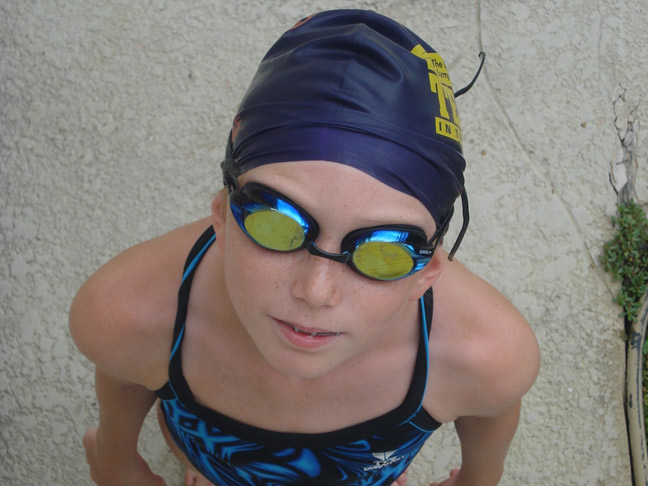Finding the right sport for our kids is not always easy. With so many options available, and children’s varied personalities, it may be a process of trial and error. If your child enjoys the water, swim team may be an option to consider.
Different Strokes for Different Folks
My nine-year-old daughter was accepted on a swim team when she was four because she was passionate about the sport. My seven year old son, however, was only recently invited to participate, and he still needs some encouragement. As different as their personalities are, both of my kids are thriving in the swim team environment. They swim completely different events (longer distances for my daughter and only 25 meters for my son), but they are both happily competing.
Safety, Fitness, Fun!
Although I never had any exposure to a swim team growing up, I need my children to be strong swimmers. My desire is not to groom the next Janet Evans or Michael Phelps. My sole purpose for encouraging the swim team culture remains the same: safety. We live in a warm climate along the coast; I can’t afford to worry about my kids at the beach, on a boat, or at a pool party. Swim team has given them the opportunity to become extremely proficient with their strokes. They have become competent swimmers while maintaining a high level of fitness, and they are having fun at the same time!
More Swim Team Benefits
Swim team offers discipline built into each workout. It is a complete body workout without hard impact to growing bones and formative muscles. Due to its forgiving nature, swimming is a sport that can be practiced for years beyond childhood. It provides excellent cardiovascular training, as well as gentle resistance training. Swim clubs teach team sportsmanship, but also allow for individual success in personal events. Kids compete independently (with the exception of relays), but are part of the larger network of swimmers.
Tips for Finding Your Team
Michael Galindo, who swam for the University of Michigan, works for Floaties Swim School in Poway, California. As Head Coach of their Triton Swim Team, Galindo offers these helpful suggestions when researching swim teams:
1. Investigate the coach’s background. The bare minimum requirement to coach swimming is to maintain a Level 1 certification from the American Swim Coach Association (ASCA). The highest level of certification available is a 5, based on the individual’s experience, expertise, training, and personal swimming accolades.
2. Check out the team’s philosophy. Is it similar to the standard you expect?
3. Observe the rapport between the coach and current swimmers. Is there an evident level of comfort and confidence between both parties?
4. Pay attention to the degree of focus and commitment from existing swimmers. A good team is only as good as the kids who comprise it, with regard to attitude and cooperation.
5. Ask if the team is USA Swimming certified or certified by the United States Swim School Association? According to Galindo, these are “the equivalent of the Better Business Bureau for swim teams”.
Further Questions to Consider
Does my child enjoy the social aspect of working with other children toward a common goal?
Is the scheduled practice time realistic for our family’s schedule?
Does the team practice year-round? Depending on your location and local weather, many swim teams do not take hiatus; this may be a positive or a negative, depending on your perspective.
Check out the associated fees. Swim meets, coaches’ fees, and team gear should be considered when calculating the monthly cost.
Is the team strong in numbers? This could be a sign of high satisfaction. You might consider asking other parents their opinion.
Does the team’s workout flow? Is it well organized according to age and ability?
Taking the Plunge
If you are looking for a positive sport that will grow with your kids, swim team may just suit your family. For more information or to find a team near you, check out http://www.usaswimming.org .
